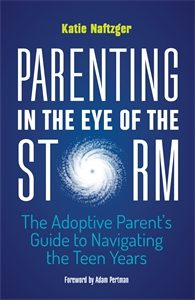Welcome
What does being adopted mean to you?
Being adopted is an evocative, meaningful experience. For some, it’s at the heart of everything, for others, it flies under the radar. For many, the meaning of being adopted evolves and shifts over time. It’s intertwined with other losses, traumas, relationships and life leaps. Adult adoptees can feel overwhelmed with their intense feelings and wonder, “Will it ever get any easier, and if so, how?
Being an adoptive family is also complex. Just when adoptive parents think they understand their child, teen or young adult, everything changes! The task of being an adoptive parent humbles even the seasoned parent, making it difficult to feel empowered.
I’ve been dedicated to helping adoptive families for 20 years. In an era of information overload, I bring clarity, insight and simple strategies to your questions, concerns and fears. As a psychotherapist and adoption specialist, I’ve seen hundreds of adoptees and parents. And, yes, I bring a lifetime of experience as an adoptee, which informs and enriches the work.

Parenting In The Eye of The Storm: The Adoptive Parent's Guide to Navigating Teen Years
From The Book:
“In some ways you’re starting from scratch. When they were younger, it was about comfort and learning and structure. Now, it’s about preparing them for the future, for adult relationships and responsibilities, and staying connected for the long haul.” —– page 34
“The dynamic of rescuing in your relationship with your adopted teen can be powerful, nuanced and often problematic. Typically, rescuing refers to the act of saving someone (or something) from a dangerous or distressing situation. But for our purposes, it’s more than that. It is the potential dynamic in the relationship between adoptive parent and teen, in which adoptive parents tamper with or intervene in life experiences that cultivate the ability to adapt and cope with adversity.”—- page 49-50
“The path to young adulthood doesn’t begin with love. It begins with respect. When a teen tells me that they don’t respect their parents, I know that that’s where our work should begin.”—page 64





